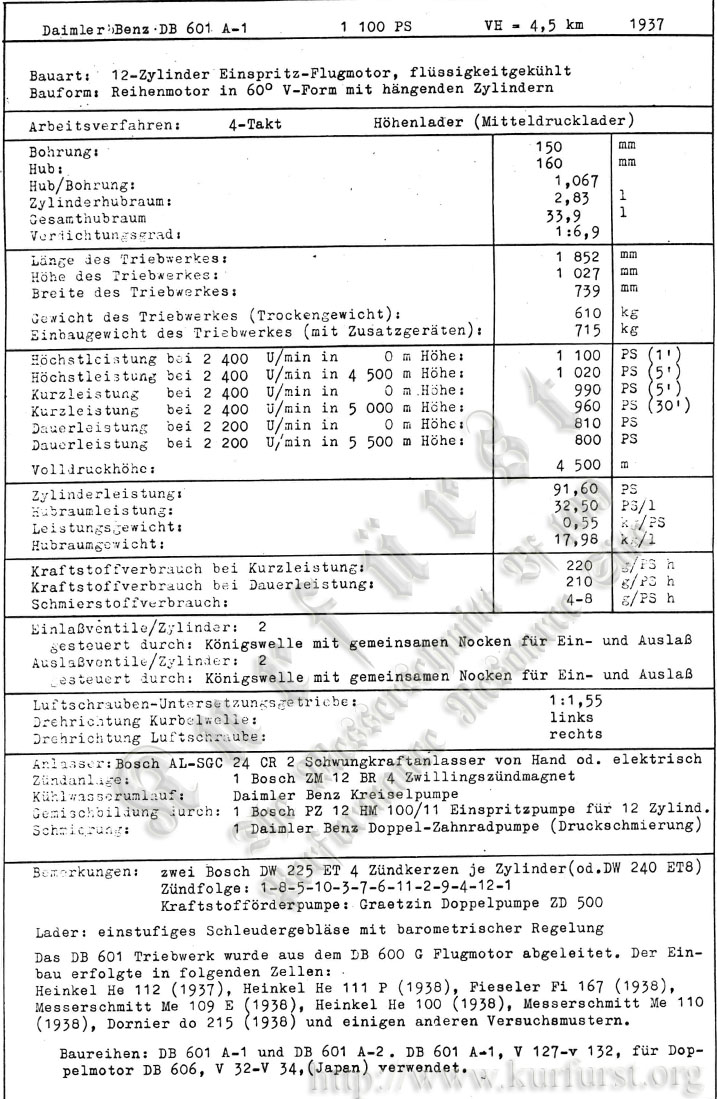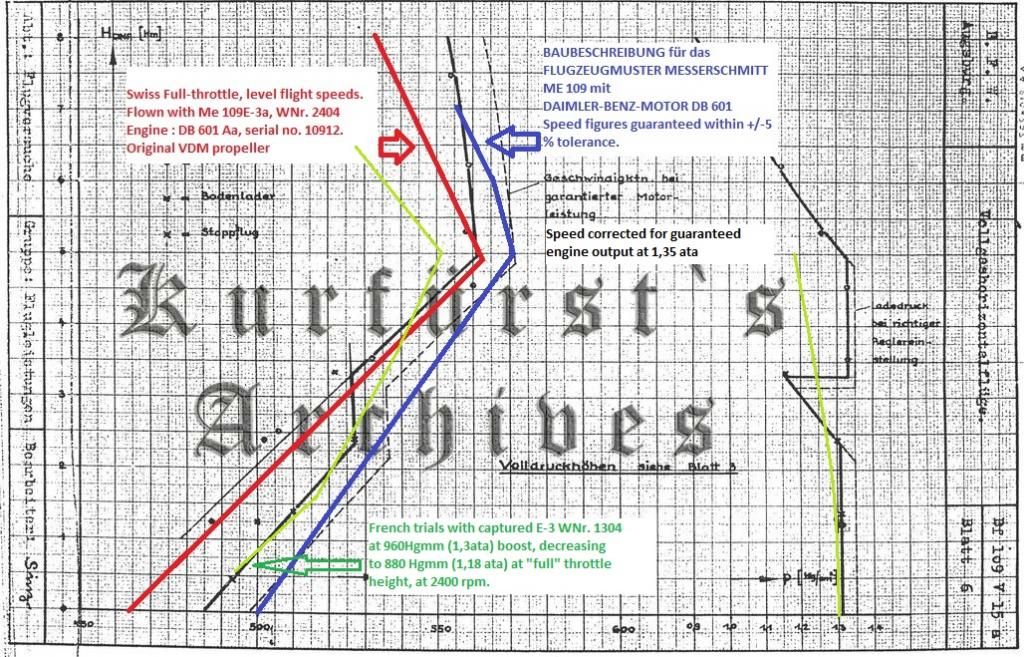
 |
|
|||||||
| IL-2 Sturmovik: Cliffs of Dover Latest instalment in the acclaimed IL-2 Sturmovik series from award-winning developer Maddox Games. |
|
|
Thread Tools | Display Modes |
|
#11
|
|||
|
|||
|
I.
The Me 109E had at least four fitting and used during the Battle of Britain, with different boost and outputs. 1. The DB 601A-1 with the old type supercharger, 1.30 ata for five min and 990 PS, and 1.40 ata for 1 min and 1100 PS. Rated altitude being 4000m. 2. The DB 601A-1 with the new type supercharger, 1.30 ata for five min and 990 PS, and 1.40 ata for 1 min and 1100 PS. Rated altitude being 4500m.  3. The DB 601Aa with the old type supercharger, 1.35 ata for five min and 1045 PS, and 1.45 ata for 1 min and 1175 PS. Rated altitude being 3700m (altitude output was otherwise very much like the DB 601A-1 / old s/c, though it is an open question wheter the new s/c was fitted to the Aa as well. So far no evidence to that though.) This is the type we have in the sim.  4. The DB 601N, 1.35 ata for five min and 1175 PS. Rated altitude being 4800m. (there was a second type of 601N, mounted in one in the 109F had better supercharger and IIRC 5200 m rated altitude)  II. Therefore, it is pointless to compare our 601Aa equipped Emils performance (1.35ata) to real life tests of DB 601A-1 equipped Emils at 1.3ata. It makes about as much sense as checking Spitfire I performance from the crayon +12 boost graph It should of course match the real life DB 601Aa at 1.35ata (V-15a, Baubeschreibung "5%" specs, Swiss trials of serial no. 2404 - these all have Aa, although it's quite clear the Swiss graph is only showing high speed supercharger, ie. Hohenlader performance - note the almost exact match between V15a Hohenlader and the Swiss single speed graph)  III. Misc. comments 1. The "French 109" was an E-3, not an E-1: WNr. 1304. Besides the aerodynamic differences between the E-1 and E-3 are marginal, probably in the order of 1-2 kph. It seems to loose manifold pressure continously with altitude - I suppose the use of French lubrication of oils instead of German synthetics may be at culprit (since the hydraulic coupling was using this oil). It had a DB 601A-1 and operated at 1,3ata, ie. lower boost/power than our E-1/E-3/E-4s. 2. The WNr. 1791 and 1792 tests can be easily forgotten given that - this was never a performance tests, but a speed comparison with various fittings: As it notes clearly - Geschwinigkeitsunterscheid - comparison of speed -as a result only the relative values (guns in / out, slats sealed/not sealed) were interesting Mtt AG in these tests, they were not made to get absolute values. - they do not have the same 1.35ata Aa engine as our Bf 109E has, but a weaker 601A at 1.3ata, which developed about 55 HP less. - in addition report clearly notes the engine outputs were not corrected for guaranteed engine performance, which means we/they have no idea how much those engines were developing. Again, given that all those two reports were supposed to show was what's the speed difference with this thing on and that thing off this hardly concerned Mtt at the time. 3. The fact that Mtt. accepted the V15a trial results and guaranteed them within 5% for the ca. 4000 Emils produced needs very little comment. 4. The "nazi propaganda" (pathethic, even for Mike It's one chapter from a 75 page document describing the airframe, powerplant, equipment, armament, performance, as well as the all the instruments. It's hardlly a two page "marketing material" as some like to pretend - besides the fact that the specs are guaranteed and are based on flight tests.
__________________
Il-2Bugtracker: Feature #200: Missing 100 octane subtypes of Bf 109E and Bf 110C http://www.il2bugtracker.com/issues/200 Il-2Bugtracker: Bug #415: Spitfire Mk I, Ia, and Mk II: Stability and Control http://www.il2bugtracker.com/issues/415 Kurfürst - Your resource site on Bf 109 performance! http://kurfurst.org 
|
|
|